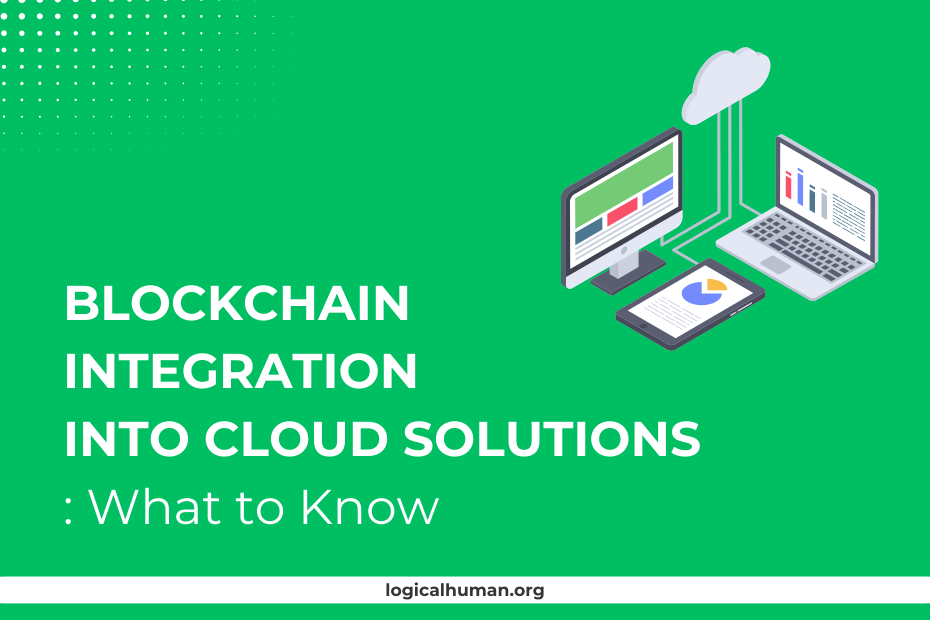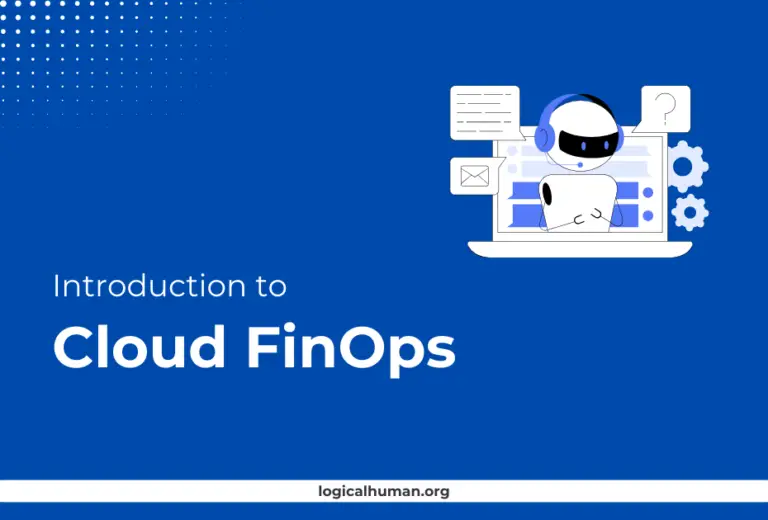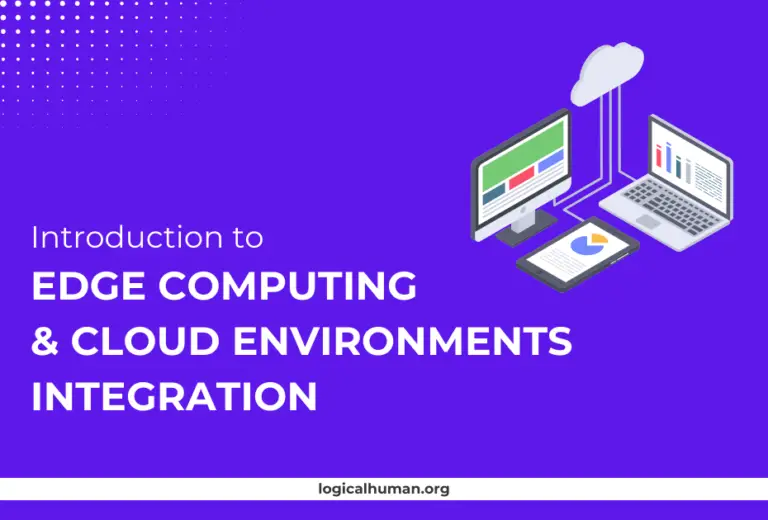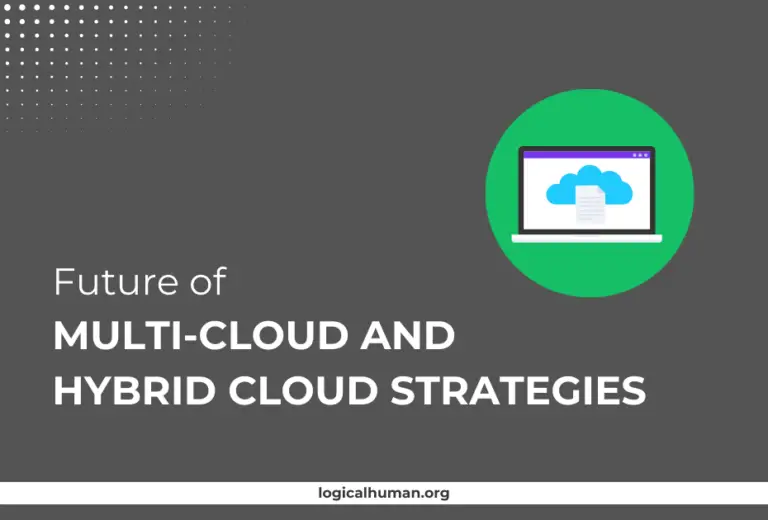In today’s digital era, businesses are increasingly adopting cloud solutions to streamline their operations and improve efficiency. At the same time, blockchain technology has emerged as a transformative force, promising enhanced security, transparency, and decentralization. But what happens when these two powerful technologies converge? In this article, we’ll explore the integration of blockchain into cloud solutions, unraveling its potential, challenges, and best practices.
What is Blockchain?
Blockchain, often synonymous with cryptocurrencies like Bitcoin, is much more than just digital money. It’s a decentralized ledger technology that enables secure, transparent, and tamper-proof recording of data across a distributed network.
Core Principles of Blockchain Technology
At its core, blockchain operates on three primary principles: decentralization, immutability, and transparency. Each transaction or piece of data is recorded in a “block,” which is then linked to the previous one, forming a “chain.” This structure makes it incredibly difficult for any single entity to alter the data, ensuring its integrity and security.
Types of Blockchain: Public, Private, and Hybrid
Blockchain networks can be categorized into three types:
- Public Blockchain: Open to anyone and characterized by complete transparency.
- Private Blockchain: Restricted to a specific group of participants, offering controlled access.
- Hybrid Blockchain: Combines features of both public and private blockchains, providing flexibility and scalability.
Overview of Cloud Computing
Cloud computing refers to the delivery of computing services—such as storage, processing power, and applications—over the internet. It eliminates the need for physical infrastructure, enabling organizations to access resources on-demand.
Key Benefits of Cloud Solutions
Cloud solutions offer numerous benefits, including cost savings, scalability, and accessibility. Businesses can scale their operations up or down based on demand, reducing costs associated with maintaining physical servers and data centers.
Popular Cloud Service Models: IaaS, PaaS, SaaS
There are three primary cloud service models:
- Infrastructure as a Service (IaaS): Provides virtualized computing resources over the internet.
- Platform as a Service (PaaS): Offers a platform for developing, testing, and deploying applications.
- Software as a Service (SaaS): Delivers software applications over the internet, eliminating the need for installations.
The Intersection of Blockchain and Cloud Computing
Why Integrate Blockchain with Cloud Solutions?
Integrating blockchain into cloud solutions brings several unique advantages, making it an attractive proposition for businesses.
Enhancing Data Security and Privacy
Blockchain’s decentralized and encrypted nature ensures that data stored on the cloud remains secure and tamper-proof. This is particularly valuable in industries like healthcare and finance, where data security is paramount.
Improved Transparency and Trust
Blockchain’s transparent ledger system enhances trust among stakeholders. Every transaction is recorded and visible to all participants, reducing the potential for fraud or manipulation.
Cost Efficiency and Operational Benefits
By automating processes through smart contracts and reducing the need for intermediaries, blockchain can lower operational costs and improve efficiency in cloud-based applications.
Use Cases of Blockchain in Cloud Computing
The integration of blockchain and cloud computing is not just theoretical. Several practical use cases are already being implemented across various industries.
Secure Data Storage and Sharing
Blockchain can provide a secure and decentralized framework for storing and sharing sensitive data in the cloud. This is particularly useful for collaborative projects where multiple parties need access to shared data without compromising security.
Smart Contracts in Cloud Services
Smart contracts—self-executing contracts with the terms directly written into code—can automate processes within cloud services, such as billing, service provisioning, and compliance checks.
Decentralized Cloud Applications (DApps)
Decentralized applications, or DApps, run on a blockchain network rather than a centralized server. Integrating these with cloud solutions can offer enhanced security and flexibility, making them ideal for applications that require high levels of trust and transparency.
Key Considerations for Blockchain Integration into Cloud Solutions
While the integration of blockchain and cloud computing holds promise, there are several considerations to keep in mind.
| Platform | Type | Best Use Cases | Key Features |
|---|---|---|---|
| Ethereum | Public | Smart Contracts, DApps | Decentralized, Robust Smart Contract Support |
| Hyperledger | Private/Consortium | Enterprise Solutions, Supply Chain | Modular architecture, Permissioned network |
| Corda | Private | Financial Services, Regulatory Compliance | Contract validation, Interoperability |
| Quorum | Private/Fork of Ethereum | Finance, Banking | Permissioned network, Private transactions |
| Stellar | Public | Payment Solutions, Cross-border Transactions | Low fees, High speed for small transactions |
Scalability Challenges
Blockchain’s Scalability Issues
One of the major limitations of blockchain technology is its scalability. As the number of transactions increases, the time and resources required to process them also rise, leading to bottlenecks.
Overcoming Scalability with Cloud Infrastructure
Cloud computing can help alleviate these issues by providing the necessary computational resources to handle large-scale blockchain operations, making it easier to scale applications.
Data Privacy and Compliance
GDPR and Blockchain Integration
The immutable nature of blockchain poses challenges when it comes to data privacy regulations like the General Data Protection Regulation (GDPR). It’s crucial to find a balance between maintaining data integrity and adhering to privacy laws.
Managing Data Sovereignty in a Cloud Environment
Data sovereignty—the concept that data is subject to the laws of the country in which it is located—becomes complex when integrating blockchain with cloud solutions. Organizations must ensure that their data storage and processing comply with relevant regulations.
Security Aspects
Mitigating Cybersecurity Risks
While blockchain is inherently secure, integrating it with cloud solutions can introduce vulnerabilities. It’s essential to implement robust security measures, such as multi-factor authentication and encryption, to safeguard the system.
The Role of Encryption and Hashing in Blockchain
Encryption and hashing are fundamental to blockchain’s security. Understanding and properly implementing these techniques is crucial for protecting data and ensuring secure transactions.
Best Practices for Implementing Blockchain in Cloud Solutions
Successful integration of blockchain and cloud computing requires careful planning and execution.
Choosing the Right Blockchain Platform
Public vs. Private Blockchain for Cloud Integration
The choice between public and private blockchain depends on the use case. Public blockchains offer greater transparency, while private ones provide more control and scalability.
Evaluating Popular Platforms like Ethereum, Hyperledger, and Corda
Different blockchain platforms offer varying features and capabilities. For example, Ethereum is known for its smart contract functionality, while Hyperledger is popular for enterprise solutions.
Establishing a Robust Governance Framework
Smart Contract Governance
Governance is critical when implementing smart contracts in a cloud environment. It’s essential to establish clear rules and mechanisms for managing smart contract execution and dispute resolution.
Identity and Access Management (IAM)
IAM solutions help manage who has access to what within a blockchain-cloud ecosystem. Implementing strong IAM practices can prevent unauthorized access and ensure data security.
Optimizing Performance and Cost
Balancing Cloud Resource Allocation
Efficiently managing cloud resources is crucial for optimizing performance and controlling costs. This involves selecting the right mix of computing power, storage, and network resources.
Managing Blockchain Transaction Costs
Blockchain transactions often involve fees, which can add up over time. It’s important to optimize the frequency and volume of transactions to keep costs manageable.
Future Trends in Blockchain-Cloud Integration
The integration of blockchain and cloud computing is still evolving, and several exciting trends are on the horizon.
Convergence with AI and IoT Technologies
The convergence of blockchain with AI and IoT is opening up new possibilities for automation, data security, and intelligent decision-making in cloud environments.
The Rise of Blockchain-as-a-Service (BaaS)
BaaS solutions are making it easier for businesses to implement blockchain technology without the need for extensive in-house expertise. This trend is expected to accelerate the adoption of blockchain-cloud integration.
Potential for Hybrid and Multi-Cloud Blockchain Solutions
Hybrid and multi-cloud strategies are becoming increasingly popular as businesses seek to leverage the strengths of different cloud providers. Integrating blockchain with these approaches can provide greater flexibility and resilience.
Conclusion
The integration of blockchain into cloud solutions offers numerous benefits, from enhanced security and transparency to cost savings and operational efficiency. However, it also presents challenges, such as scalability issues and compliance concerns. By carefully considering these factors and following best practices, businesses can unlock the full potential of this powerful combination.
FAQs
What are the main benefits of integrating blockchain into cloud solutions?
Integrating blockchain with cloud solutions enhances security, transparency, and efficiency. It allows for secure data storage and sharing, automated processes through smart contracts, and improved trust among stakeholders.
Can blockchain technology improve cloud security?
Yes, blockchain’s decentralized and encrypted nature makes it highly secure, reducing the risk of data breaches and unauthorized access in cloud environments.
What are the challenges in implementing blockchain in cloud environments?
Challenges include scalability issues, data privacy and compliance concerns, and the need for robust security measures. Proper planning and implementation are crucial for overcoming these challenges.
Which industries can benefit most from blockchain-cloud integration?
Industries such as finance, healthcare, supply chain, and logistics can benefit greatly from blockchain-cloud integration, particularly for secure data sharing, process automation, and improved transparency.
Is Blockchain-as-a-Service a good option for small businesses?
Yes, BaaS allows small businesses to leverage blockchain technology without the need for extensive infrastructure or expertise, making it an accessible and cost-effective option.



